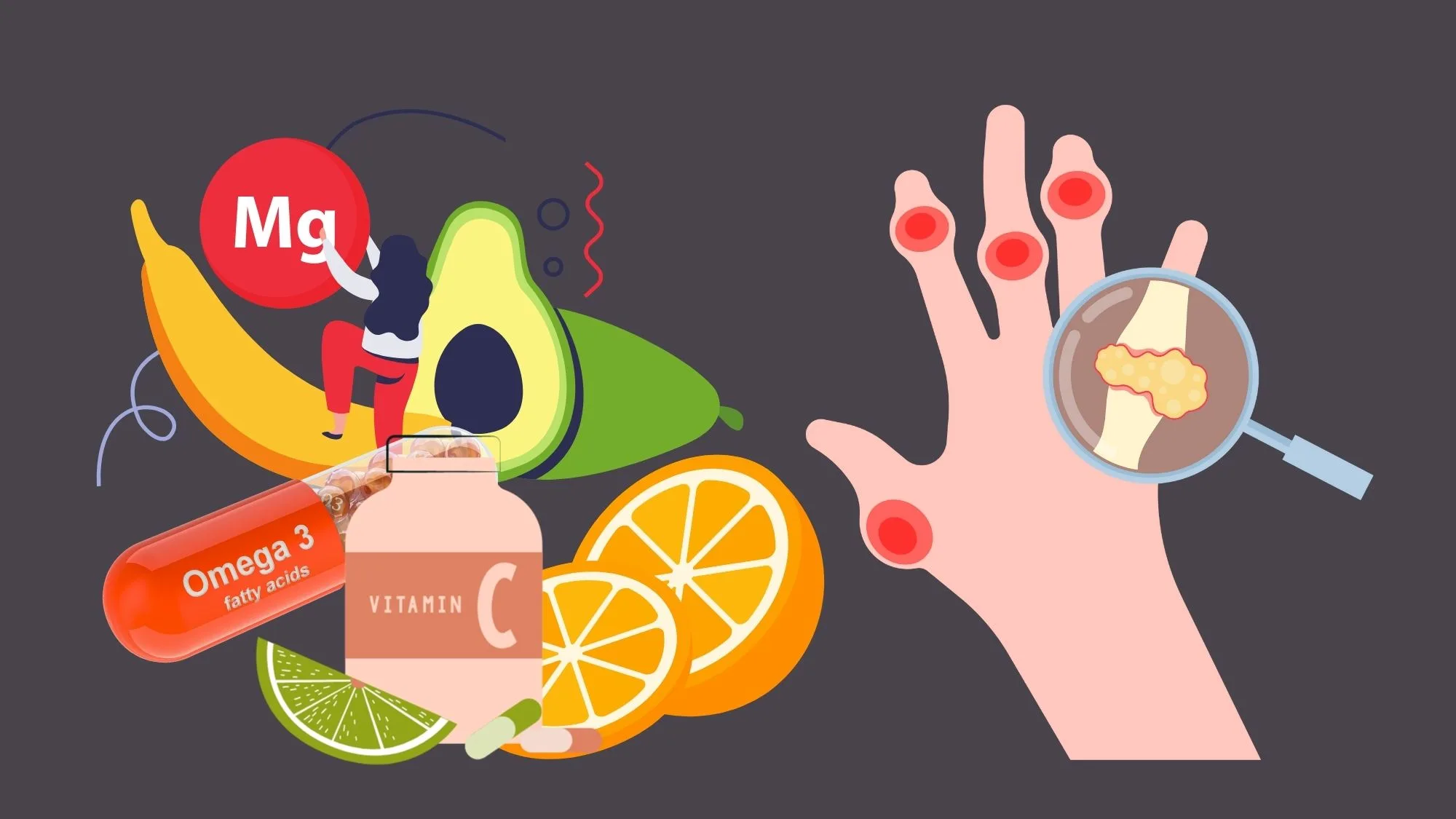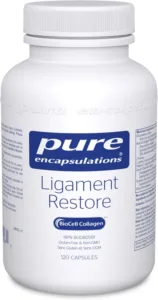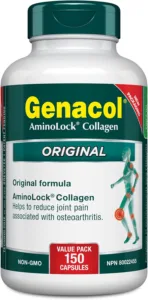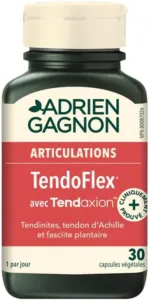
Tendonitis is a common condition that occurs when the tendons, which connect muscles to bones, become inflamed and irritated. It can cause pain, stiffness, and limited mobility, making it difficult to perform daily activities. If you’re dealing with tendonitis, you may be wondering if any supplements can help alleviate your symptoms and support tendon health. In this comprehensive guide, we will explore the best supplements for tendonitis and provide you with valuable insights to make informed choices.
Understanding Tendonitis: Causes and Symptoms
Tendonitis is a condition that occurs when the tendons, which are thick cords that attach muscles to bones, become inflamed or irritated. It can be caused by a variety of factors, including repetitive movements, overuse, and injury. When the tendons are subjected to excessive stress or strain, they can become damaged, leading to the development of tendonitis.
Common symptoms of tendonitis include pain, swelling, tenderness, and a decreased range of motion in the affected area. The pain may be dull and achy or sharp and intense, depending on the severity of the condition. It is important to seek medical attention if you experience persistent pain or if the symptoms worsen over time.
To effectively manage tendonitis, it is crucial to understand the root causes and identify appropriate treatment options. By addressing the underlying causes and implementing targeted therapies, individuals can alleviate symptoms, promote healing, and prevent further damage.
The Role of Inflammation in Tendonitis
Inflammation plays a key role in the development and progression of tendonitis. It is the body’s natural response to injury or irritation, and it helps to initiate the healing process. However, when inflammation becomes chronic, it can lead to further damage and prolonged healing time. In the case of tendonitis, the inflammation occurs in the tendons, causing pain and discomfort.
By targeting inflammation, supplements can potentially help reduce pain and discomfort associated with tendonitis. Natural anti-inflammatory compounds, such as omega-3 fatty acids and turmeric, have shown promise in reducing inflammation and promoting healing in tendonitis cases. These supplements can be taken orally or applied topically, depending on the specific needs of the individual.
It is important to note that while supplements can be beneficial in managing tendonitis, they should not replace traditional treatment methods. It is always recommended to consult with a healthcare professional before starting any new supplement regimen.
Common Types of Tendonitis
Tendonitis can affect various parts of the body, with some of the most common types including Achilles tendonitis, tennis elbow, and rotator cuff tendonitis.
Achilles tendonitis is characterized by pain and inflammation in the Achilles tendon, which connects the calf muscles to the heel bone. It is often caused by overuse or repetitive strain, such as excessive running or jumping activities.
Tennis elbow, also known as lateral epicondylitis, is a condition that causes pain and inflammation in the tendons on the outside of the elbow. It is commonly seen in individuals who engage in repetitive arm movements, such as tennis players, painters, and carpenters.
Rotator cuff tendonitis affects the tendons and muscles that surround the shoulder joint. It can result from repetitive overhead activities or sudden trauma to the shoulder. Individuals with rotator cuff tendonitis may experience pain and weakness in the shoulder, making it difficult to perform daily tasks.
Each type of tendonitis has its own unique characteristics and may require specific treatment approaches. Understanding the specific type of tendonitis you are dealing with can help you choose the right supplements for your needs. However, it is important to remember that supplements should be used as part of a comprehensive treatment plan, which may include physical therapy, rest, and other interventions.
The Connection Between Nutrition and Tendonitis
Proper nutrition plays a crucial role in supporting tendon health and healing. By fueling your body with the right nutrients, you can enhance the recovery process and minimize the risk of future tendon injuries. Let’s explore how nutrients affect tendon health and why a balanced diet is essential for tendonitis management.
Tendons are tough, fibrous tissues that connect muscles to bones. They play a critical role in transmitting forces from muscles to bones, allowing movement and providing stability to joints. However, tendons are also prone to injury, especially when subjected to repetitive stress or overuse. Tendonitis, which refers to inflammation of a tendon, is a common condition that can cause pain, swelling, and limited mobility.
How Nutrients Affect Tendon Health
Nutrients such as collagen, vitamin C, and omega-3 fatty acids play a vital role in maintaining the strength and integrity of tendons. Collagen is a structural protein that provides support to tendons, giving them the ability to withstand tension and stress. Vitamin C is essential for collagen synthesis, helping to promote the production of new collagen fibers and repair damaged tendons. Omega-3 fatty acids, found in sources like fish oil, possess anti-inflammatory properties that can help reduce tendon inflammation and alleviate pain.
In addition to collagen, vitamin C, and omega-3 fatty acids, other nutrients like zinc, magnesium, and vitamin E also contribute to tendon health. Zinc is involved in collagen synthesis and helps with wound healing, while magnesium plays a role in muscle relaxation and tendon flexibility. Vitamin E acts as an antioxidant, protecting tendons from oxidative damage caused by free radicals.
By incorporating these nutrients into your diet or through supplementation, you can provide your tendons with the essential building blocks they need to stay healthy. However, it’s important to consult with a healthcare professional or registered dietitian before starting any new supplements to ensure they are appropriate for your specific needs.
The Importance of a Balanced Diet in Tendonitis Management
While supplements can be beneficial in supporting tendon health, it’s important to note that they should not replace a balanced diet. A diet rich in fruits, vegetables, whole grains, lean proteins, and healthy fats can provide a wide range of essential nutrients and antioxidants necessary for overall health and optimal tendon function.
Fruits and vegetables are excellent sources of vitamins, minerals, and antioxidants that help protect tendons from oxidative stress and promote healing. Whole grains, such as quinoa and brown rice, provide complex carbohydrates that supply energy for tendon repair and maintenance. Lean proteins, including chicken, fish, and tofu, are essential for collagen synthesis and muscle recovery. Healthy fats, such as those found in avocados, nuts, and olive oil, help reduce inflammation and support tendon health.
Remember, supplements are intended to supplement, not substitute, a healthy diet. While they can be helpful in filling nutrient gaps, it’s always best to prioritize whole foods as the main source of nutrition. Additionally, staying hydrated is essential for tendon health, as water helps maintain the elasticity and lubrication of tendons.
Proper nutrition is key to supporting tendon health and managing tendonitis. By consuming a balanced diet that includes a variety of nutrient-rich foods, you can provide your tendons with the necessary nutrients to promote healing, reduce inflammation, and minimize the risk of future injuries. Remember to consult with a healthcare professional or registered dietitian for personalized advice and recommendations.
Overview of Supplements for Tendonitis
Supplements can be a valuable addition to a comprehensive tendonitis management plan. They can provide targeted support to reduce inflammation, support tendon healing, and promote overall joint health. However, it is important to choose the right supplements and use them appropriately. Let’s take a closer look at the role of supplements in promoting tendon health and explore some tips for selecting the right ones.
The Role of Supplements in Tendon Health
Supplements can offer a range of benefits for tendon health, such as reducing inflammation, supporting collagen synthesis, and improving overall joint function. Tendons are tough, fibrous tissues that connect muscles to bones, and they play a crucial role in the movement and stability of our joints.
When tendons become inflamed due to overuse, injury, or other factors, it can lead to tendonitis. This condition can cause pain, swelling, and limited mobility, making it important to address and manage effectively. While rest, physical therapy, and proper nutrition are key components of tendonitis treatment, supplements can provide additional support to enhance the healing process.
One of the primary benefits of supplements for tendon health is their ability to reduce inflammation. Inflammation is a natural response of the body to injury or irritation, but chronic inflammation can hinder the healing process and contribute to ongoing pain and discomfort. Certain supplements, such as omega-3 fatty acids and turmeric, have anti-inflammatory properties that can help alleviate inflammation in the tendons and promote a faster recovery.
It’s important to note that while supplements can provide valuable support for tendon health, they should not be relied upon as the sole treatment for tendonitis. They work best when used in combination with other treatment modalities, such as physical therapy, rest, and proper nutrition. It’s essential to consult with a healthcare professional before starting any new supplement regimen to ensure safety and effectiveness.
How to Choose the Right Supplements
When selecting supplements for tendon health, it’s important to consider factors such as the quality and purity of the ingredients, the reputation of the manufacturer, and the specific needs of your individual condition. With countless supplement options available on the market, it can be overwhelming to determine which ones are the most suitable for your needs.
This ensures that the product contains the ingredients it claims to have and that it meets safety standards. Third-party testing also helps to verify the absence of harmful contaminants or impurities.
Choosing reputable brands with a track record of producing high-quality products is also crucial. Look for companies that prioritize research and development, and have a commitment to transparency and consumer education. Reading reviews from other users can also provide valuable insights into the effectiveness and reliability of a particular supplement.
It’s important to remember that everyone’s needs and conditions are unique. What works for one person may not necessarily work for another. If you need guidance in selecting the right supplements for your tendon health, healthcare professionals, such as your primary care physician or a registered dietitian, can offer personalized advice based on your specific needs and medical history. They can help you navigate through the vast array of options and tailor a supplement regimen that aligns with your goals and supports your overall tendon health.
Top Vitamins and Minerals for Tendonitis
While supplements can vary in their efficacy for different individuals, several have shown promising results in supporting tendon health and managing tendonitis. Let’s explore three top supplements that you may consider incorporating into your tendonitis management plan:
Vitamin C and Its Benefits for Tendonitis
Vitamin C plays a crucial role in collagen synthesis, making it an essential nutrient for tendon health and repair. It possesses antioxidant properties that can help reduce inflammation and oxidative stress, potentially enhancing the healing process. Consider incorporating vitamin C-rich foods like citrus fruits, strawberries, and bell peppers into your diet or consult with your healthcare professional about vitamin C supplementation.
The Effectiveness of Magnesium in Tendonitis Treatment
Magnesium is a mineral that plays a vital role in muscle and tendon function. It helps regulate calcium levels, supports muscle relaxation, and may aid in reducing inflammation. While more research is needed, some studies have suggested that magnesium supplementation may be beneficial for tendon health and overall athletic performance. Discuss with your healthcare professional whether magnesium supplementation is appropriate for you and what dosage would be suitable.
Omega-3 Fatty Acids and Their Role in Tendon Health
Omega-3 fatty acids, particularly eicosapentaenoic acid (EPA) and docosahexaenoic acid (DHA) have anti-inflammatory properties that can help reduce inflammation associated with tendonitis. If your dietary intake of omega-3 fatty acids is insufficient, you may consider incorporating fish oil supplements into your routine. However, it’s crucial to consult with your healthcare professional for recommended dosages and possible interactions with other medications.
Top 3 Best Supplements for Tendonitis
- Pure Encapsulations – Ligament Restore. A powerful blend of glucosamine, collagen, amino acids, vitamin C, and herbs designed to support the natural repair process of healthy connective tissue. This formula, combining collagen and glucosamine sulfate, is crafted to alleviate joint pain. For optimal results, it is suggested to take 4 capsules daily in divided doses with 8–10 oz of water, preferably with meals. Results may vary individually. Restore and support your joints with this effective supplement.
 Pure Encapsulations Ligament Restore
Pure Encapsulations Ligament Restore
- Adrien Gagnon – TendoFlex. Eases pain from elbow, shoulder, and Achilles tendon tendonitis. Provides relief for plantar fasciitis pain. Supported by clinical studies, just one capsule per day. Non-GMO, Peanut Free, Dairy Free, Gluten Free, Sugar-Free, and Tree Nut Free.
- Genacol ORIGINAL Collagen Joint Pain Relief Supplements. Use premium hydrolyzed collagen proven to support healthy joints and relieve osteoarthritis pain. The patented formula aids natural collagen production. Genacol, Canada’s top choice for bone and joint supplements, offers science-backed products with pure, non-GMO ingredients. These supplements protect joints, supporting knee health, cartilage, and overall joint well-being. A better alternative to glucosamine chondroitin and MSM supplements.
 Genacol ORIGINAL Collagen Joint Pain Relief Supplements
Genacol ORIGINAL Collagen Joint Pain Relief Supplements
Potential Risks and Side Effects of Supplements
While supplements can offer benefits for tendon health, it’s important to be aware of potential risks and side effects. Here are two crucial considerations:
Understanding the Risks of Over-supplementation
Taking excessive amounts of certain supplements can lead to adverse effects and may interfere with other medications or medical conditions. Always follow the recommended dosage guidelines provided by the supplement manufacturer or consult with your healthcare professional for personalized advice.
Possible Side Effects of Common Supplements
Individuals may experience different side effects when taking supplements. Common side effects can include digestive issues, allergic reactions, and interactions with other medications. It’s essential to monitor your body’s response to supplements and seek medical advice if any concerning symptoms arise.
Incorporating supplements into your tendonitis management plan can provide targeted support for tendon healing and overall joint health. However, it’s essential to consult with your healthcare professional and choose high-quality supplements that align with your individual needs. Remember, supplements should complement a balanced diet, regular exercise, rest, and other appropriate medical interventions. By taking a holistic approach to tendonitis management, you can optimize your recovery and promote long-term tendon health.
Use CareClinic App To Manage Tendon Health
As you explore the best supplements for managing tendonitis and strive for optimal tendon health, the CareClinic App can be an invaluable tool in your journey. With features designed to track your supplement intake, monitor symptoms, and log physical therapy exercises, CareClinic helps you stay on top of your treatment plan and witness the progress you’re making. By consistently using CareClinic to record your daily regimen, you can gain insights into what’s working for you and adjust your approach for improved health outcomes. CareClinic’s reminders ensure you never miss a dose or therapy session, and the comprehensive health diary allows you to reflect on your overall well-being. Take control of your tendonitis management by installing the CareClinic App today and experience the difference it can make in your recovery and long-term tendon health.



 Adrien Gagnon TendoFlex
Adrien Gagnon TendoFlex